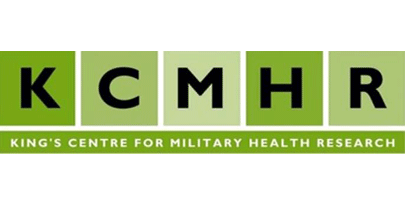A new tool to identify veterans in secondary healthcare services
A new automated tool known as the Military Service Identification Tool (MSIT) has been developed by researchers at the King’s Centre for Military Health Research (KCMHR) which can successfully identify veterans in electronic healthcare records.
Veteran status is not consistently recorded in healthcare records, making it difficult for clinicians to recognise if someone ever served in the military, whether military-related factors may be relevant to their healthcare, and if they could be entitled to military-specific support. Recording veteran status is also important for researchers to study the health needs of this population.
The Military Service Identification Tool uses machine learning to analyse healthcare records and using the text in those records to make a prediction on whether the patient has ever served in the military.
The Military Service Identification Tool was successful in accurately identifying veterans from the healthcare records of a specific secondary mental healthcare service - South London and Maudsley (SLaM) NHS Foundation Trust. Data were rigorously analysed by checking the tool’s predictions against clinical records and by asking patients themselves for their veteran/civilian status. When asking patients themselves, 84% were accurately classified as having military experience. Researchers found the tool to be substantially more accurate and less time-intensive than other possible approaches, like using military keywords in a simple manual search.
The tool is available for researchers and NHS trusts for further testing and development across other parts of the health service, with the code available in the report. Doing so will provide a better picture of veterans’ health and will help policy-makers, commissioners and other stakeholders ensure that the health and support services provided to veterans are appropriate.
Use of the Military Service Identification Tool allowed for identifying and then comparing individuals with a military background to those without. Veterans accessing SLaM’s mental health services were more likely to have diagnoses of depressive, anxiety, stress, personality and psychotic disorders compared to those without military experience, and veterans were more likely to be detained under the Mental Health Act. These findings cannot be generalised as they are specific to those accessing SLaM services and require further investigation.
Overall, the researchers advocate for veteran status to be more widely recorded, as findings suggest that they may demonstrate different health needs from the general population and for further investigation into the treatment pathways for veterans accessing healthcare services regionally and nationally.
Tom McBarnet, Chief Executive ([Acting] of Forces in Mind Trust), said:
Dr Laura Palmer, a researcher and lecturer at KCHMR, said:
Professor Rob Stewart, Academic Lead for the Maudsley’s Clinical Record Interactive Search (CRIS) platform, said:
The research was led by the King’s Centre for Military Health Research at King’s College London and Combat Stress, and was funded by Forces in Mind Trust.
You can read the full report here.
